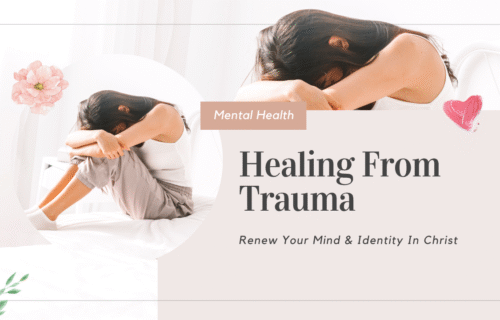
When Love Hurts: How Churches Can Be a Lifeline for Addicts in Their Darkest Moments
Addiction is a battle that many people face, and as members of the church community, it’s important for us to offer support and compassion to those who are struggling. In this blog post, we’ll explore ways in which churches can walk alongside addicts with understanding and empathy, providing them with the care they need to heal and thrive.
Join us as we delve into the power of compassionate care in helping individuals overcome their addiction and find hope in their journey towards recovery.
The Growing Issue of Addiction in Our Society

Addiction is a complex and pervasive problem that affects individuals, families, and communities all over the world. It is a chronic disease characterized by compulsive drug or alcohol use despite harmful consequences. According to the World Health Organization (WHO), 31 million people worldwide suffer from drug use disorders, while around 11 million people die each year due to unhealthy substance use.
In recent years, addiction has become a growing concern in our society. It not only affects the individuals struggling with it but also has far-reaching impacts on their loved ones and the larger community. The rise of opioid addiction, prescription drug abuse, and alcoholism have all contributed to this issue’s increasing prevalence.
One of the main reasons for this surge in addiction is the easy availability of drugs and alcohol. With technology advancements and online platforms facilitating access to various substances, it has become easier than ever for individuals to feed their addictions. Additionally, societal pressures and stressors such as financial difficulties, relationship problems, or mental health issues can also contribute to an individual’s likelihood of developing an addiction.
The consequences of addiction are devastating and far-reaching. Not only does it lead to physical health problems like liver damage or heart disease, but it also takes a toll on one’s mental well-being. Addicts often experience feelings of guilt, shame, hopelessness, and isolation as they struggle with their dependency on substances.
Furthermore, addiction can tear apart relationships with family members and friends as well as cause problems at work or school. It can also lead to criminal behavior such as theft or violence to support one’s habit.
Unfortunately, many people struggling with addiction do not receive the help they need due to the stigma surrounding this issue. This stigma often leads to discrimination towards those seeking recovery services which further perpetuates feelings of shame and prevents individuals from seeking treatment.
Society needs to understand that addiction is a disease that requires medical treatment and support rather than judgment and condemnation. As a community, we must come together to address this issue and offer compassionate care to those who are struggling.
In the following sections, we will explore how churches can play a vital role in providing support and care for individuals dealing with addiction. By walking alongside those struggling with addiction, the church can play a crucial role in helping them find hope, healing, and recovery.
Understanding Addiction: Causes, Triggers, and Stigma
Addiction is a complex and often misunderstood issue that affects millions of individuals worldwide. While there is no single cause of addiction, it is widely recognized as a disease that can have various contributing factors. In this section, we will explore the different causes of addiction, common triggers for relapse, and the stigma surrounding this illness.
Causes of Addiction:
One of the primary causes of addiction is genetics. Research has shown that individuals with a family history of substance abuse are more likely to develop an addiction themselves. This suggests that there may be certain genetic markers that predispose some people to addictive behaviours.
Another significant factor in the development of addiction is environmental influences. Trauma, neglect, or exposure to drug use at a young age can all contribute to an individual’s vulnerability to substance abuse later in life. Additionally, stressful life events such as loss or financial struggles can also increase the likelihood of developing an addiction.
Mental health disorders such as depression, anxiety, and PTSD are also closely linked to addiction. Many individuals turn to drugs or alcohol as a means of self-medicating their symptoms and find temporary relief from their mental health struggles. However, this often leads to dependence and further exacerbates their condition.
Triggers for Relapse:
It’s essential to understand that recovery from addiction is an ongoing process and not just a one-time event. Many factors can trigger a relapse even after an individual has gone through treatment successfully. Some common triggers include stressors like job loss or relationship problems; being around people who use substances; emotional distress; and nostalgia for times when they were using.
The Stigma Surrounding Addiction:
Despite growing awareness about the complexity of addiction being a disease rather than simply moral weakness or lack of willpower, there remains significant stigma surrounding it in society today. This stigma creates barriers for individuals seeking help and often prevents them from receiving proper care. It can also lead to feelings of shame and guilt, further perpetuating the cycle of addiction.
Churches must understand the causes, triggers, and stigma surrounding addiction to provide compassionate care to those struggling with this illness. By educating ourselves and others on these issues, we can break down the barriers that prevent individuals from seeking help and offer support and understanding instead of judgment and shame.
The Role of the Church in Supporting Addicts: Compassion and Understanding

Addiction is a complex issue that affects millions of individuals and their loved ones. It is not just a physical dependency, but also a mental and spiritual struggle. As Christians, it is our responsibility to show compassion and understanding towards those who are struggling with addiction. The church has an integral role in supporting addicts and offering them compassionate care.
Compassion is at the heart of Christianity, as Jesus himself showed great empathy towards those who were marginalised and struggling. Similarly, we are called to walk alongside those who are struggling with addiction, showing them love and support without judgment or condemnation. This can be achieved through various means such as pastoral care, support groups, and outreach programs.
One way the church can offer compassionate care to addicts is through pastoral counselling. Pastors or trained counsellors within the church can provide a safe space for individuals to share their struggles with addiction. They can offer guidance, support, and prayer for healing and recovery. These sessions should be non-judgmental and focused on understanding the root causes of addiction rather than simply addressing the symptoms.
In addition to one-on-one counselling, churches can also organize support groups specifically for individuals battling addiction. These groups create a sense of community where members can openly discuss their struggles without fear of being judged or rejected. Group members can offer each other accountability, encouragement, and prayers for strength in their journey towards recovery.
Churches can also reach out to local rehabilitation centres or halfway houses to offer spiritual support for recovering addicts. Often these individuals may have lost touch with their faith during their struggle with addiction, so having someone from the church visit them regularly could provide much-needed spiritual guidance and comfort.
Furthermore, churches can also play a vital role in educating themselves about addiction through workshops or training sessions provided by experts in this field. This will enable church leaders to have a better understanding of how they can support and care for individuals who are struggling with addiction in their congregation.
The role of the church in supporting addicts is crucial. By showing compassion and understanding towards those who are battling addiction, we can create a safe and supportive environment for them to heal and recover. Let us follow in the footsteps of Jesus by walking alongside those who are struggling, offering them love, hope, and faith on their journey towards healing.
Providing a Safe and Welcoming Environment for Addicts
Addiction is a complex and difficult struggle for individuals and their loved ones. It can often leave those affected feeling isolated, judged, and alone. As a church community, it is our responsibility to create a safe and welcoming environment for addicts where they can find the support and care they need on their journey towards recovery.
One of the first steps in providing a safe space for addicts is to break down any stigmas or stereotypes surrounding addiction. Often, people struggling with addiction are labelled as “weak” or “immoral,” which only serves to further isolate them. As Christians, we are called to love and accept all individuals regardless of their struggles. By openly discussing addiction in our church communities and emphasizing that it is a disease rather than a moral failing, we can create an environment of understanding and compassion.
In addition to addressing stigma, it’s crucial to establish clear boundaries within the church regarding substance use. This means ensuring that alcohol or drugs are not present at any church events or functions. While this may seem extreme to some, it sends a powerful message that the church is committed to creating a safe space for those struggling with addiction.
Furthermore, training and educating church leaders on how to respond appropriately when someone reaches out for help is essential in providing a safe environment for addicts. It’s important to recognize that addiction is not something that can be easily overcome by willpower alone. Church leaders should be equipped with resources and referrals for professional treatment options so they can provide appropriate support and guidance.
Another vital aspect of offering compassionate care to addicts is creating opportunities for them to share their stories without fear of judgment or shame. This could take the form of small support groups within the church where individuals can connect with others who understand their struggles firsthand. By sharing experiences and offering mutual support, these groups can foster healing relationships within the church community.
It’s crucial always to keep confidentiality at the forefront when supporting those struggling with addiction. Addicts often fear the consequences of disclosing their struggles, such as losing their job or damaging relationships. By maintaining confidentiality, church communities can create a safe and trustworthy environment for individuals to seek help without fear of negative repercussions.
Providing a safe and welcoming environment for addicts within the church is essential in offering compassionate care to those struggling with addiction. By breaking down stigmas, establishing boundaries, educating church leaders, creating opportunities for sharing and mutual support, and maintaining confidentiality, we can walk alongside those struggling with addiction with love and compassion.
Offering Practical Support: Counseling, Recovery Programs, and Accountability Groups

One of the most important ways that churches can offer compassionate care to addicts is by providing practical support. This includes counselling, recovery programs, and accountability groups. These resources can be crucial in helping individuals struggling with addiction find healing and overcome their struggles.
Counselling is a valuable tool for addicts as it allows them to address the root causes of their addiction and develop coping mechanisms to manage their cravings and triggers. Churches can partner with licensed counsellors or have trained volunteers who are equipped to provide counselling services to those struggling with addiction. This can be done through one-on-one sessions or group therapy, depending on the individual’s needs and preferences.
In addition to counselling, recovery programs are also essential in offering practical support for addicts within the church community. These programs provide structured guidance and support in developing healthy habits and addressing addictive behaviours. Recovery programs often incorporate elements such as education, accountability, relapse prevention techniques, and spiritual guidance.
Churches need to create a safe space where individuals feel comfortable sharing their struggles without fear of judgment or rejection. Accountability groups provide this type of environment by bringing together individuals who are going through similar challenges. These groups meet regularly to share experiences, encourage one another, hold each other accountable, and offer support during difficult times.
Another way that churches can offer practical support is by partnering with local rehabilitation centres or sober living homes. Through these partnerships, addicts can receive professional care while still being connected to a faith-based community for ongoing spiritual support.
Additionally, churches can organise workshops or seminars on addiction awareness and prevention for both members of the congregation and the wider community. This not only helps raise awareness but also provides resources for families who may be dealing with loved ones struggling with addiction.
Churches must establish proper systems of follow-up after an individual has completed a recovery program or received counselling services. Follow-up care ensures that individuals continue receiving necessary support even after they have completed formal treatment programs.
Offering practical support through counselling, recovery programs, accountability groups, and partnerships with professional treatment centres is crucial in providing compassionate care to addicts. By providing these resources within the church community, individuals struggling with addiction can find the necessary support to overcome their struggles and find healing.
Addressing Spiritual Needs: Faith-Based Healing and Finding Purpose in Recovery
Addiction is a complex and multifaceted disease that can impact not only an individual’s physical and mental well-being but also their spiritual health. For many individuals struggling with addiction, there is a deep sense of emptiness and lack of purpose that often leads them down the path of substance abuse. As churches strive to offer compassionate care to those struggling with addiction, it is crucial to address their spiritual needs as an integral part of the recovery process.
Faith-based healing is a powerful tool in helping individuals overcome addiction. Many studies have found that incorporating spirituality into treatment programs can lead to increased feelings of hope, improved self-esteem, and reduced levels of anxiety and depression among those in recovery. This approach recognises that addiction is not just a physical or psychological issue, but also a spiritual one.
One way churches can support individuals in recovery is by providing opportunities for faith-based healing through prayer, meditation, and scripture study. These practices can help individuals connect with a higher power, find inner peace, and gain strength during difficult times. Additionally, offering support groups specifically tailored for individuals in recovery can provide a safe space for them to share their experiences and receive encouragement from others on the same journey.
In addition to addressing spiritual needs through traditional means such as prayer and scripture study, churches can also play a pivotal role in helping addicts find purpose in their recovery journey. Often, substance abuse stems from feelings of hopelessness and lack of direction. By guiding individuals towards finding their purpose within themselves as well as within their community through service projects or volunteer work, churches can help foster a sense of fulfilment and belonging.
Furthermore, churches can also offer resources such as counselling services or referral networks for professional help when needed. It is important for church leaders to recognise that while they may play an important role in addressing spiritual needs during recovery, they are not trained therapists and should not attempt to provide professional counselling on their own.
Addressing spiritual needs through faith-based healing and finding purpose in recovery is a crucial aspect of compassionate care for those struggling with addiction. By incorporating these elements into their support programs, churches can play a vital role in helping individuals overcome addiction and find hope, healing, and purpose in their lives.
Breaking the Cycle of Shame and Judgment: Creating a Culture of Acceptance and Love

Addiction is often accompanied by feelings of shame, guilt, and self-judgment. This can create a vicious cycle where individuals struggling with addiction feel trapped and unable to break free from their destructive behaviours. Unfortunately, this cycle is perpetuated by society’s stigma and judgment towards addiction.
To effectively offer compassionate care to addicts, churches must first work towards breaking this cycle of shame and judgment. They must strive to create a culture of acceptance and love within their community.
Acceptance is an essential aspect of breaking the cycle of shame. It involves acknowledging that addiction is a disease rather than a moral failing or choice. Often, individuals struggling with addiction are burdened with feelings of guilt and failure because they believe they should be able to control their behaviour. However, research has shown that addiction is caused by biological, psychological, and social factors beyond one’s control.
By accepting this truth, churches can help remove the burden of shame from those struggling with addiction. This can be done through educating members about the science behind addiction and challenging harmful stereotypes. By understanding that addiction is not a personal flaw but a complex issue, church members can begin to show compassion instead of judgment towards those affected by it.
Furthermore, creating a culture of love within the church community can also help in breaking the cycle of shame. Love involves showing genuine empathy towards others’ struggles without any conditions attached. It means offering support rather than criticism or condemnation.
Churches can promote this culture through open communication and active listening. By providing safe spaces for individuals to share their experiences without fear of being judged or rejected, they encourage vulnerability which leads to healing.
Moreover, churches can also play an important role in promoting self-love among addicts. Often, individuals struggling with addiction have low self-esteem as a result of societal stigma and negative self-talk. Churches can offer resources such as support groups, counselling, and mentorship programs to help individuals rebuild their self-worth and confidence.
Breaking the cycle of shame and judgment is crucial in offering compassionate care to addicts. By creating a culture of acceptance and love within the church community, individuals struggling with addiction can find solace and support instead of condemnation and rejection. This not only promotes healing but also fosters a more inclusive and understanding community for all members.
Further Resources





Add A Comment